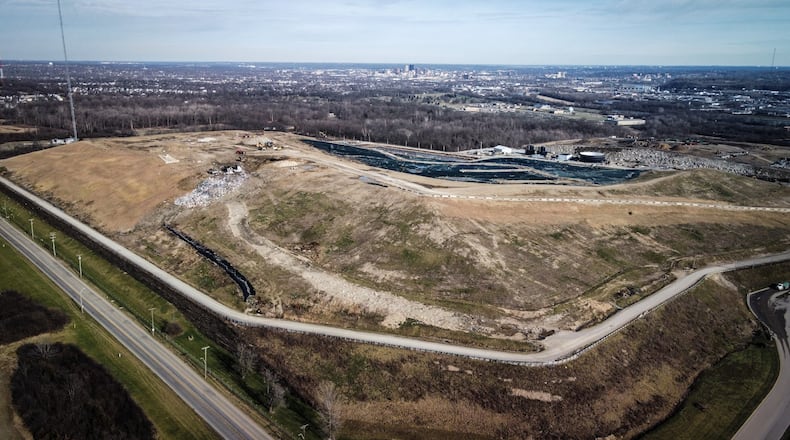Waste Management, the landfill’s owner, has taken steps that it and city officials say guarantee that this project will not expand the waste disposal area.
“The conservation easement that is currently in place prevents the current owner from operating the property as a landfill, or any other owner in the future,” said LaShea Lofton, Dayton’s deputy city manager.
In 2015, Stony Hollow Landfill asked the Dayton Plan Board to allow it to rezone about 29 acres of property south of its facility to establish a soil borrow operation.
The landfill, located at 2460 S. Gettysburg Ave., needs soil for its daily operations to cover waste taken there for disposal and other purposes.
But the plan board on two different occasions voted to deny the request after neighbors complained, with some residents saying the facility is ugly, smelly, causes pollution and hurts their property values.
Neighbors and plan board members, however, primarily were concerned that the landfill might try to expand its footprint for waste disposal, increasing the facility’s lifespan.
The landfill, which began accepting solid waste in 1996, originally was projected to fill up and close down after about 11 years.
However, the landfill later received Ohio Environmental Protection Agency approval to expand and it continues to operate and isn’t expected to reach capacity and close for years to come.
But Stony Hollow Landfill has signed a conservation easement that says the soil borrow property cannot be used for landfill or waste purposes, said Tony Kroeger, Dayton’s division manager of planning and land use.
Under the easement, Dayton and Moraine — which has property adjacent to the landfill — can inspect the site to ensure its compliance with the prohibition.
Currently, Stony Hollow Landfill brings in soil using about eight to 12 large trucks each day, which causes pollution and noise and wears down public roads, city staff said.
The planned soil borrow operation could remove about 19,000 trucks from public roads during the lifetime of the soil borrow area, which is expected to be about three to six years, said Peter Lucas, Stony Hollow’s site engineer and soon-to-be manager of the facility.
Lucas said once soil extraction activities are complete the property will be revegetated and landscaping enhancements will screen nearby residential properties.
The Dayton City Commission last week approved Stony Hollow’s request by an unanimous vote.
Four of the five commissioners had to vote in favor of the request to approve it, after the plan board’s denial.
Some people still oppose the project.
In a letter to the city commission, Nathaniel and Shannon Stepps, who live nearby, said the landfill causes odors, noise, birds, underground contamination and is an eyesore.
They said neighbors have suffered enough after earlier landfill expansions.
About the Author

